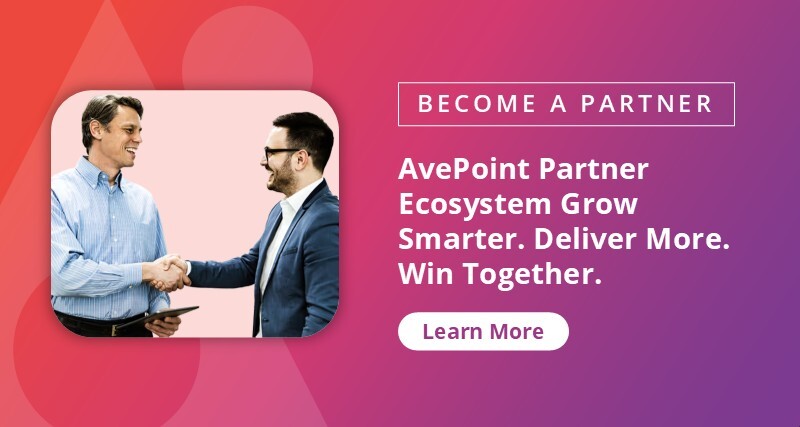From the managed services market change, to the hundreds of thousands of tech layoffs and a shift in how value is delivered, the channel ecosystem isn’t what it used to be. Historically, the role of channel partners was limited to being intermediaries between vendors and customers, delivering basic IT solutions and products at scale. Value addition was minimal, and the emphasis was on providing competitive pricing to the clients.
Now, channel partners have moved beyond IT maintenance to act as consultants by designing and implementing solutions that are aligned with their customers’ unique business goals. This evolution didn’t happen overnight, and understanding its trajectory is crucial for anyone looking to capitalize on the future of technology partnerships.
This blog explores how partners are no longer just selling licenses; they’re managing environments, securing data, and driving digital transformation. More importantly, this blog delves into where partners are headed.
What Changed in the Channel?
Emerging technologies such as cloud services and AI integration, shifting market demands, and changing customer expectations are key factors in the transformation. Initially, value-added resellers (VARs) bundled software and services with hardware to address complex business challenges. This approach moved the channel from simple product distribution to solution delivery, differentiating VARs through expertise and industry knowledge. The introduction of remote monitoring and management (RMM) software revolutionized the channel, enabling managed service providers (MSPs) to oversee IT infrastructure remotely and offer proactive maintenance.
This technology enabled partners to invest more heavily in staff training, advanced tools, and deeper client relationships. For customers, the MSP model offered predictable IT costs, access to specialized expertise, and the ability to focus on their core business instead of managing technology infrastructure. It was a win-win that drove rapid adoption across small and medium businesses worldwide.
The numbers tell the story: The introduction of RMM tools in the early 2000s marked a turning point for VARs, enabling them to evolve into MSPs. This shift allowed partners to move from reactive break/fix models to proactive, recurring service delivery. Over the next two decades, MSPs expanded their offerings to include cloud services, cybersecurity, and advanced analytics. Today, managed services generate over $595 billion globally, with double-digit growth rates, reflecting the continued demand for scalable, secure, and service-oriented partner models.

The Business Model: From Transactions to Transformations
More than 70% of the end-to-end customer journey is transacting digitally, a trend that has changed the way organizations build and maintain relationships with one another to solve industry challenges. What began as transaction-based, break/fix services has evolved into strategic, outcome-driven partnerships built on recurring revenue streams. Early partners made money by marking up hardware and charging hourly rates for reactive support.
Today’s most successful channel partners have flipped this model entirely — they generate predictable monthly recurring revenue (MRR) by taking proactive responsibility for their clients’ technology outcomes, shifting from selling products to selling business results and peace of mind.
Canalys estimates that by 2025, IT managed services revenue in the channel will grow approximately 13% year on year, with around 341,000 partners delivering these managed services. The fundamental shift in how channel partners create and capture value in AI integration, focusing on security and governance, represents one of modern technology’s most significant business model transformations. However, the channel partner evolution from transactional resellers to strategic advisors has not only brought opportunities but also significant challenges.
Challenges and Growth in the Channel Ecosystem
Here are some key challenges highlighting the dynamic and competitive nature of the modern channel ecosystem and the need for partners to continuously adapt and innovate to stay relevant and profitable:
- Increasing competition. As new partners enter the market, the channel ecosystem is becoming more crowded, creating constant pressure to innovate and compete on pricing and service quality.
- Managing vendor relationships. Channel partners often rely on vendor incentives to maintain profitability, but these programs frequently change, making navigation difficult. Many partners work with multiple vendors, each with their own technology stacks and business models, requiring careful coordination. Conflicting priorities and integration methods among vendors can also cause problems.
- Changing customer expectations. Today’s demand is for highly personalized solutions tailored to customers’ unique business needs. This requires channel partners to have a deep understanding of their operations. Additionally, the increased demand for security and compliance adds pressure on partners.
- Keeping up with technology changes. Technology is evolving rapidly, and partners often struggle to stay ahead of the curve to provide value to their clients. This necessitates new certifications and continuous learning. Some technologies also impact business models and partner strategies, such as the transition to subscription-based and managed services, which require partners to adapt their revenue and sales strategies.
- Maintaining profit margins. As more products shift to subscription models and cloud-based solutions, partners are seeing a decline in immediate profits. Additionally, the rise of digital transactions for IT products increases pressure on partners to compete on price.
The channel is no longer a static pipeline — it’s a dynamic ecosystem. As cyberthreats intensify and client expectations rise, the channel’s future lies in delivering secure, scalable, and strategic services.

The Channel’s Bright Future Providing Transformative Value
Each major transformation has expanded the role partners play in their customers’ success while creating new opportunities for growth and differentiation. Whether you’re an MSP, ISV, SI, or distributor, you need a good partner program that scales to meet your needs. Here are some key benefits of a partner program to help you go beyond transactions and deliver transformative value:
- Incentives and engagement. Unlock rewards with a points-based system that boosts engagement and sales, creating mutual growth. Partners earn points for certifications, co-marketing, and relationship-building — not just sales. It measures competency, productivity, and end-customer revenue retention to track sustainable partner revenue streams as you advance through partner tiers.
- Modern enablement opportunities. Access robust training, sales resources, and technical support to help deliver value from day one. Partners can get comprehensive enablement solutions that align with your growth goals, including building recurring revenue streams and increasing client retention.
- Certification and training. Build expertise with technical and sales training to help you understand how to administer secure collaboration environments and design custom solutions. This certification signals a differentiated level of knowledge in the technology stack to source more business and exceed competitors.
- Go-to-market kits. Accelerate your pipeline with ready-to-use marketing kits, including campaigns-in-a-box with customizable content, assets, and guidance to drive demand and close deals faster.
- Renewal margins. Boost your sustainable, service-led business with attractive renewal margins that reward long-term client retention and ongoing service delivery.
- 24x7x365 customer support. Access round-the-clock support via phone and email, ensuring you get the help you need – anytime, anywhere – to keep your business running smoothly.
Don’t just keep up — lead the way. Tomorrow’s competitive advantage will belong to partners who continually adapt and embrace new technologies, serving as business consultants to their clients.
See how far you can go. Start your journey with us!

